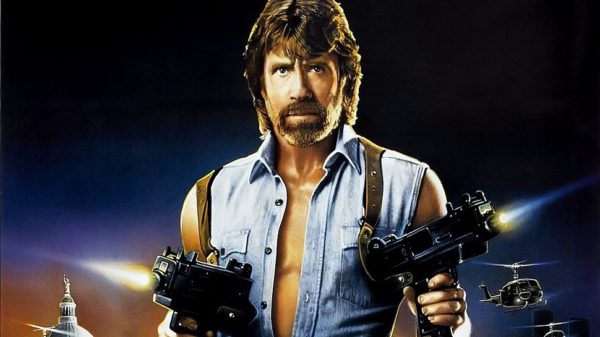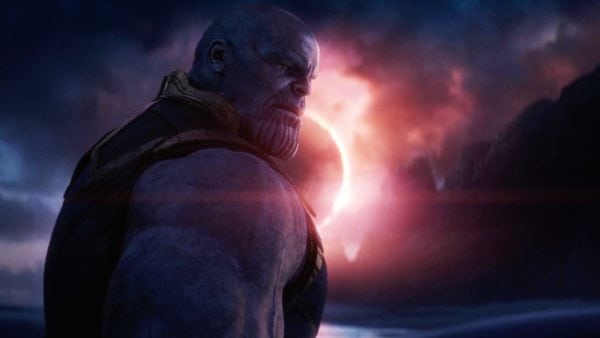Tom Jolliffe takes a look at cinema’s end of the world fascination…
As we sit in the age of Trump (currently unfazed by the plight of climate change, and skating on a sheet of thin ice as far as North Korean relations) and Brexit, aforementioned climate issues, and a general sense that democratic systems aren’t working too well, we’re stepping into an age where the end of the world film is rising in popularity again. They’ve always been popular, and predominantly come in bunches during specific periods. Post wars were rife, right back to the very first Dystopian films coming out of Germany after WW1 (most notably Metropolis), through other conflicts, and to a mass of cold war era dystopian world enders in the 80’s. A height of paranoia that would see films like Red Dawn, or the uber jingoistic Chuck Norris equivalent, Invasion USA which is oddly enjoyable in its sheer ludicrousness.

In cinematic terms, the end of the world doesn’t necessarily mean a total wipeout scenario. It could be that, or it could be an end to systems we recognise, such as democratic/free willed existence in Dystopian fantasy. In the age of Brexit you’ll oft see hyberbolic comparison to living in an Orwellian state. A reference to 1984 where ‘Big Brother’ oversees and controls all with rigid rules and a progressive lack of free choice to keep humans in check. I suppose if free choice puts Trump in the White House, there’s something to be said for having too much freedom (I jest). 1984 one way or another has been rejigged into countless cinematic feasts with everything from Brazil, Equilibrium, V for Vendetta, Idiocracy (sorely underrated and overlooked) and The Matrix (replace big brother with big cyber-brother) borrowing from Orwell.
We’ve also seen an array of films which show the rebellion or post-rebellion of mother Earth. Something as relentlessly cheesy but somewhat enjoyably daft as The Day After Tomorrow or 2012 (essentially the same film, both by Roland Emmerich). Something about us wrecking the planet, which is all too sadly ringing true, ends with a natural reaction. Occasionally it’s a dash against time to fix the problem (I recall the rather rote and perpetually melodramatic, The Core) or it’s too late and it’s a simple tale of survival to re-start the human race.

The post-apocalyptic film is a popular genre which will show everything after the dust, or snow, or water, has settled. What about when we drain all natural resources and things fall apart, like Mad Max’s world from The Road Warrior onward? There have been countless films set across dusty landscapes and sand dunes with the last bands of humanity scrapping over oil, or water, or in the case of Hell Comes To Frogtown…men. Alternatively you have second ice-ages where everything is fubar and ma-nature has hit reset on our ass. Snowpiercer had a great premise where the last of humanity on a cold barren, icy Earth are running on a perpetually looping train-line. Another scenario, seen in the mid-90’s definition of big budget bomb, Waterworld is as the title suggests. The melting of the ice-caps setting the water levels so high all land is seemingly wiped out. With civilisation and bandits existing on water via boats and floating islands.
Our fascination with the end of things also stretches beyond nature and civilisation. Maybe technology will be the end of us. I’ve never had a smart phone that was actually any good at making an actual call. Granted, that seems to be the last port of call for the phone these days anyway, so it’s yet to get to a point we need to worry. Whilst at the same time, humans get pre-occupied with weird things like automated sperm extraction machines (currently testing at spaff banks in China). Or see any number of comical infomercial videos online dedicated to the shittest products ever, to see some of the most daft things we create. So yeah, the days of machines rebelling, or in their logic board thinking, taking control and choice away in order to protect us and the planet, all seems a long way off in real life. In cinematic terms though, we’ve long enjoyed The Terminator (and its first sequel…not so much what’s come since) and The Matrix. This is all incredibly popular as literary source too, whether it’s Orwell with 84, or in terms of technological rebellion the works of people like Philip K Dick and Isaac Asimov and they’ve long been telling tales that cinema occasionally waited on to tell (I suppose for the technology to be there to do it ‘right’, like CGI).

The end of the world may not even come from within planet, but beyond. Looking out from beyond the stars our fascination is limitless. We expand into new universes, galaxies etc, sometimes as Earth falls apart, is about to, or has done. Aliens may invade, asteroids may strike, our post ruined world might have been replaced by space station or new planet which then gets further threatened. Indeed the rise in popularity in the last decade (and a bit) of Marvel and DC has seen an array of world ending events averted. Fairly often these could exist from exterior alien sources. Think Zod and Superman having a Kryptonian tiff on Ma-Earth, or Thanos snapping his finger. For the love of God I hope no one introduces Thanos to James Brown. He’ll keep on snapping until there’s 2 people left in the known Universe. Damn you James Brown.
Avengers: Endgame which is mere piffling days away, is the cinematic event of the year (apparently…mine happens to be John Wick: Chapter 3 – Parabellum, but there you go). We’ve already seen the world fall in Infinity War, so Endgame promises not only an attempt to reverse that, but the potential for even more world ending carnage along the way. With every passing year, and every increase in money that studios (notably Marvel/Disney) spend on these, the more the promise of spectacle we get. If you think The Avengers films were big, try and fathom just how spectacularly, eye-blisteringly relentless the carnage may be in a 5-10 years. We will see a billion dollar budget in our lifetime.

In the post-end film, spectacle isn’t always the pre-requisite. Occasionally the indie film will take a more philosophical, intensely character studied look at how humans would deal with the aftermath of a world ending event, or breakdown of civilised order. The Quiet Earth, which saw a man after nuclear disaster (another favourite go to) wake and find himself seemingly alone on Earth. That’s an interesting counter to something like The Omega Man, which had the similar start off scenario before turning into genre film. Other more recent examples include It Comes At Night, which or The Survivalist which took a dark, languid and vague approach to the post-apoc film, and took proceedings out to the woods. The Survivalist was more interesting though it must be said. Well worth watching.
Quite what our fascination is, and why its so popular may be oddly macabre or merely an escapist chance to sit down and consider that maybe things aren’t too bad. I mean Brexit? Pfft. Could be worse, Aliens might invade and annihilate us.
What’s your favourite end of the world film? Let us know in the comments below or give as a shout on Twitter @flickeringmyth…
Tom Jolliffe is an award winning screenwriter and passionate cinephile. He has three features due out on DVD/VOD in 2019 and a number of shorts hitting festivals. Find more info at the best personal site you’ll ever see here.










